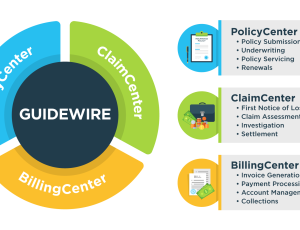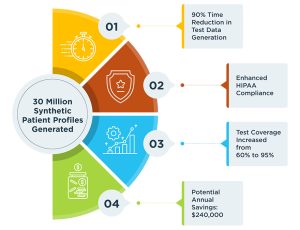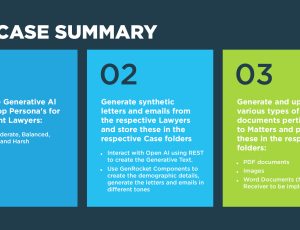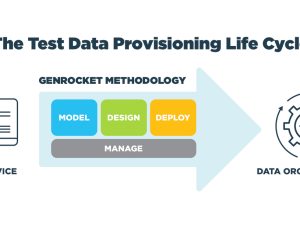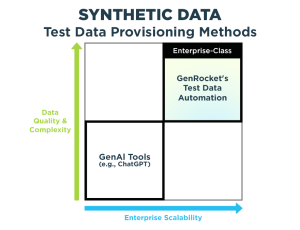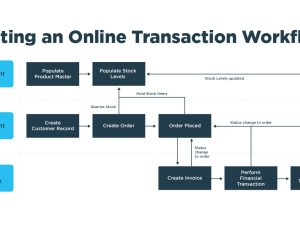
Test Data Automation – The Future of Test Data Management
In the fast-evolving world of technology, the demand for high-quality software has never been greater. Companies are under constant pressure to release new product features that not only provide a competitive edge but also enhance the customer’s digital experience. Amid this backdrop, the need for a more secure, automated, and agile approach to Test Data Management (TDM) has become paramount. Enter Test Data Automation (TDA), a fresh new approach that promises to transform the way organizations handle test data, ensuring security, compliance, and software testing efficiency.
Addressing the Security Concerns of Executive Leadership
At the heart of this transformation are C-level executives such as Chief Information Security Officers (CISOs), Chief Technology Officers (CTOs), Chief Information Officers (CIOs), and other senior leaders like VPs of Engineering and Directors of Quality Assurance. These executive stakeholders are acutely aware of the risks associated with using production data in non-production environments for software testing.
The introduction of personal information, including Personally Identifiable Information (PII) and Protected Health Information (PHI), into testing scenarios can lead to costly data breaches and noncompliance with global data privacy laws like the General Data Protection Regulation (GDPR) and the California Consumer Privacy Act (CCPA). This risk is particularly significant for companies operating in highly regulated industries such as healthcare and financial services. The graphic below illustrates multiple data privacy laws in place around the world and how they affect an organization’s ability to operate in global markets.
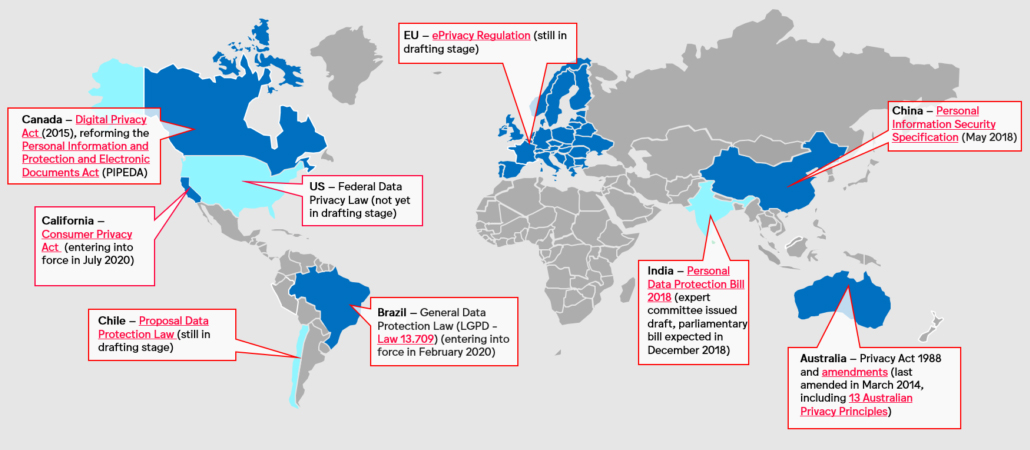
Source: WFA’s Global Privacy Map
GenRocket’s TDA platform addresses these concerns by locking down security, reducing risk, and ensuring compliance. This focus on security and compliance is crucial to meeting the concerns of executive leadership.
Additionally, GenRocket’s TDA platform supports faster release frequencies and new product introductions, which are critical for VPs of Engineering and Directors of QA. And TDA ensures the release of higher software quality by enabling more testing at a more comprehensive level to ensure the best customer experience. The traditional TDM paradigm is ready for an overhaul to dramatically improve security, enable faster release cycles, and ensure the highest level of quality through the use of automation.
Introducing GenRocket’s Test Data Automation Platform
GenRocket’s Test Data Automation platform offers a groundbreaking solution to these challenges. Unlike traditional TDM, TDA is based on dynamic synthetic data generation, a new and more automated approach that removes the inherent limitations and risks of using production data.
Central to GenRocket’s approach is Design-Driven Data, a methodology that allows for the creation of synthetic data tailored to precisely meet the needs of each individual test case, whether for functional or non-functional testing. Using a structured methodology, developers and testers can easily import a data model, design the volume, variety, and format of synthetic data they need, and deploy it directly into their automated testing framework. After each executable Test Data Case is designed, it can be added to a project library and managed in a central repository. This enables flexible reuse, repurposing, categorization, version control, monitoring, and reporting.
Design-Driven Data ensures every conceivable use case scenario is covered, providing testers with the specific data patterns, permutations, and boundary values necessary for thorough and effective testing in any complex application or data environment. The GenRocket Methodology is the bridge between data access via self-service and data delivery via integration and orchestration with test environments.
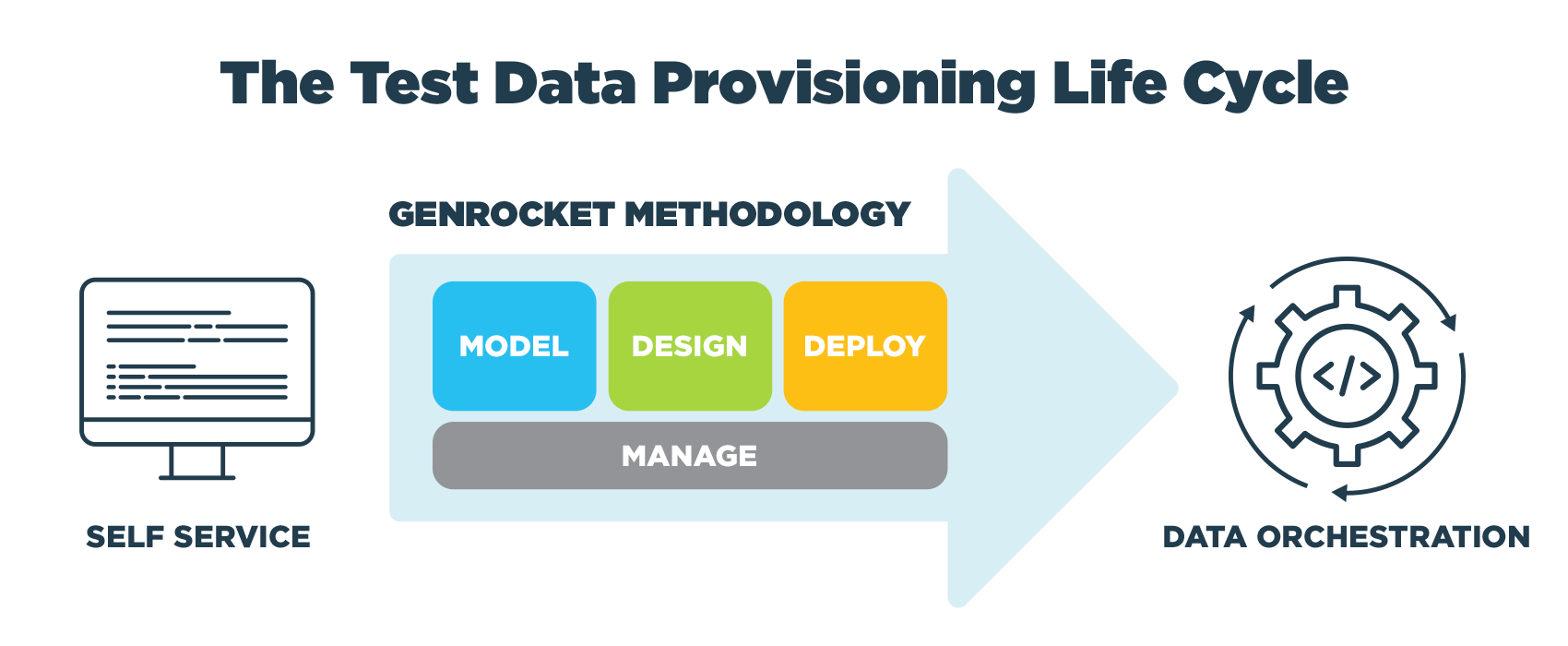
Additionally, negative testing is simply not possible with production data. However, with the ability of TDA to generate negative test data, failure modes can be quickly identified, and failure recovery mechanisms validated. And TDA can easily provide test data (or training data) for new applications that have limited or no access to a source of historical production data.
Design-Driven Data is powering a new paradigm for data provisioning as Test Data Automation promises to redefine the security, quality, and delivery of synthetic data during the software development lifecycle.
This more flexible and efficient paradigm represents the future of traditional Test Data Management and is illustrated by the diagram below.
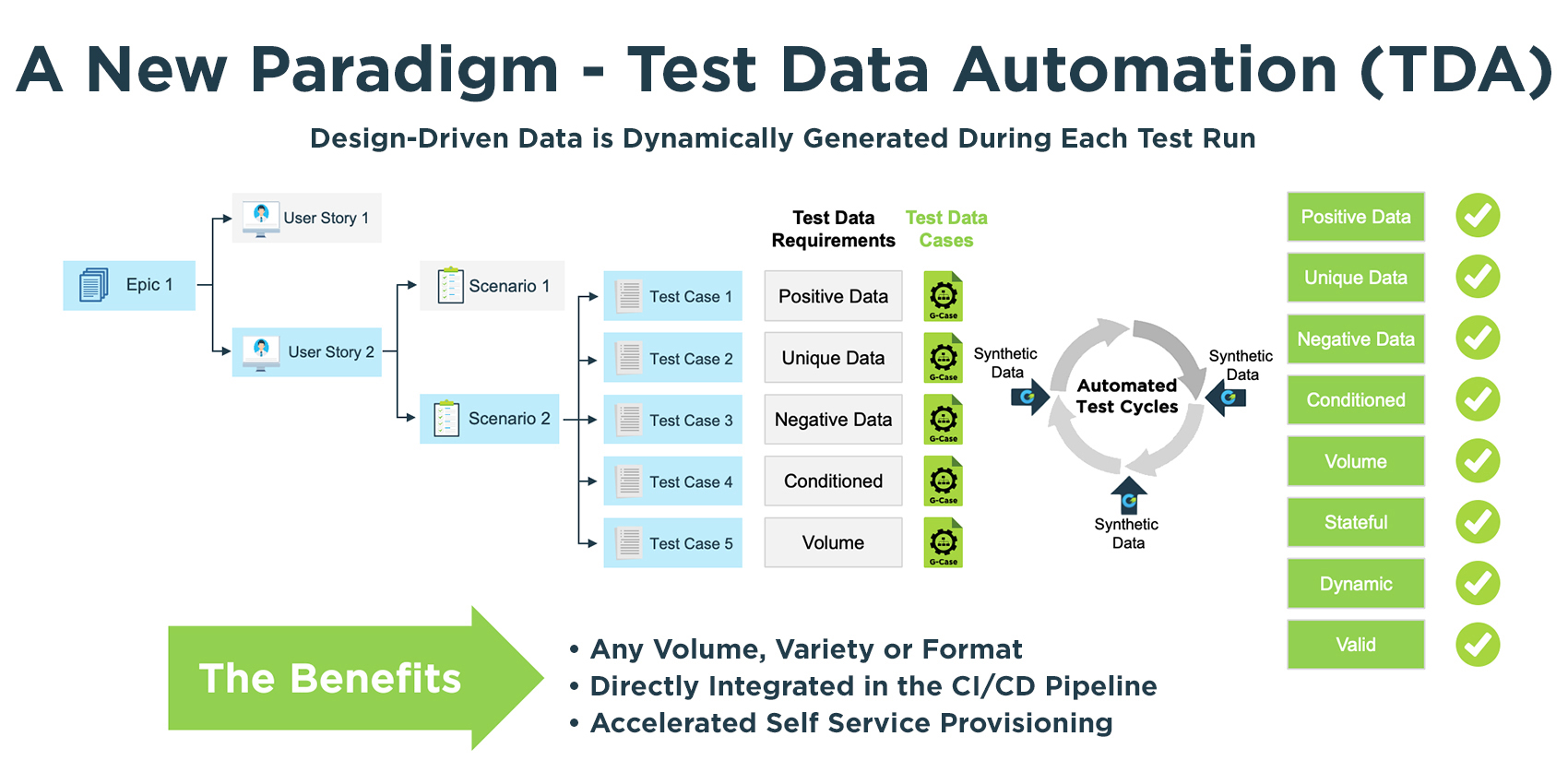
TDA complements existing agile development processes where dev and test teams jointly develop product features and appropriate test cases. The required test data is directly mapped to the test objectives of each test case. Once designed, Test Data Cases are executed by automated test procedures to generate real time synthetic data during automated test cycles.
Removing the Limitations of Legacy Test Data Management
GenRocket’s Design-Driven Data methodology is both innovative and unique in the industry. It removes the limitations and barriers associated with traditional TDM. With Design-Driven Data, data gaps in production data are eliminated and so is the need to augment production data with manually created spreadsheets or python scripts. And because Design-Driven Data is dynamically generated on demand, there’s no need for storage infrastructure to store multiple copies of test data. Dynamically generated data eliminates the need to store, reserve, and refresh a test dataset because a fresh copy of pre-designed synthetic data is generated in real-time during each test run.

It’s Important to note that most other synthetic data generation tools bring all of the limitations of traditional TDM and its use of production data. This includes the problem of data gaps and the need for data storage, data reservation, and data refresh. That’s because their approach is to generate a statistical replica of a source production data set. While this approach removes the risk of introducing sensitive data in a lower environment, it fails to remove the other limitations of traditional Test Data Management. GenRocket dynamically generates its design-driven synthetic data on-demand, so it can deliver complete and accurate data for any testing or training data requirement without these limitations.
One Enterprise-Class Platform for Data Provisioning
By transitioning from traditional production data to synthetic data, companies can eliminate the risks associated with data breaches and noncompliance. However, the total replacement of production data with synthetic data will take time. New technology adoption and deployment must be an evolutionary and non-disruptive process. To that end, GenRocket’s TDA platform supports traditional TDM capabilities, like copying, subsetting, and masking of production data. This allows organizations to adopt synthetic data at their own pace while maintaining familiar workflows. With GenRocket, one centrally managed data provisioning platform provides an evolutionary path to the full-scale enterprise-wide deployment of synthetic Test Data Automation.
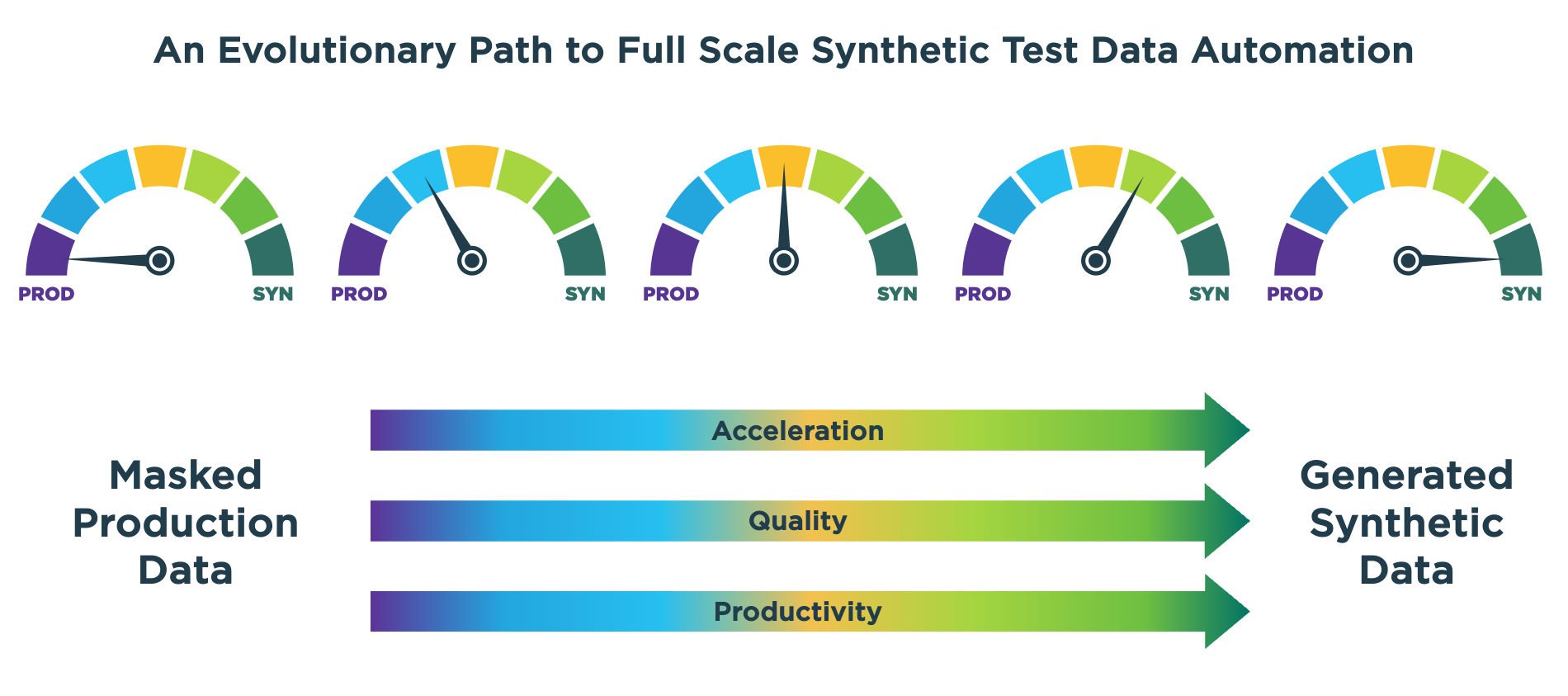
Enterprise class scalability is an important consideration for global data provisioning and a sharp distinction between the GenRocket platform and alternative synthetic data generation tools, including the use of generative AI for generating synthetic data. Enterprise scalability requires the combination of advanced data provisioning technologies with distributed self-service and seamless integration with automated release pipelines, all under the control of centralized platform management.
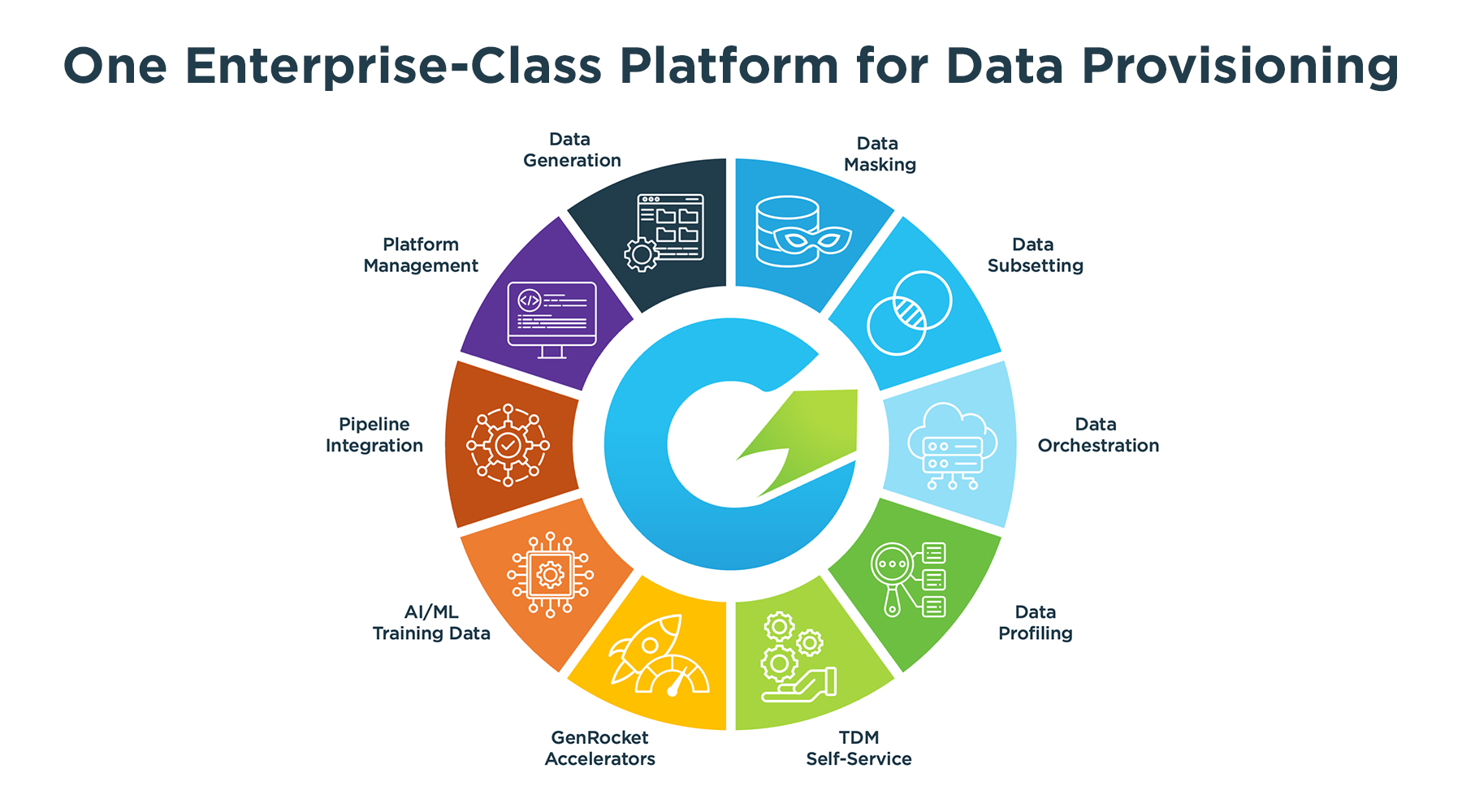
The diagram above summarizes the important building blocks that comprise GenRocket’s single enterprise-class platform for data provisioning. Learn more about GenRocket’s One Data Platform solution.
TDA Drives Higher Efficiency
One of the most compelling advantages of TDA is its ability to deliver data directly into any automated test environment. The use of dynamic data generation and orchestrated data delivery streamlines the testing process, allowing developers and testers to self-provision data that meets all test case objectives without manual intervention. The result is a significant reduction in the time and effort required to prepare for and perform software testing, accelerating the overall software development lifecycle. With GenRocket’s TDA platform, the right data is delivered to the right place, at precisely the right time.
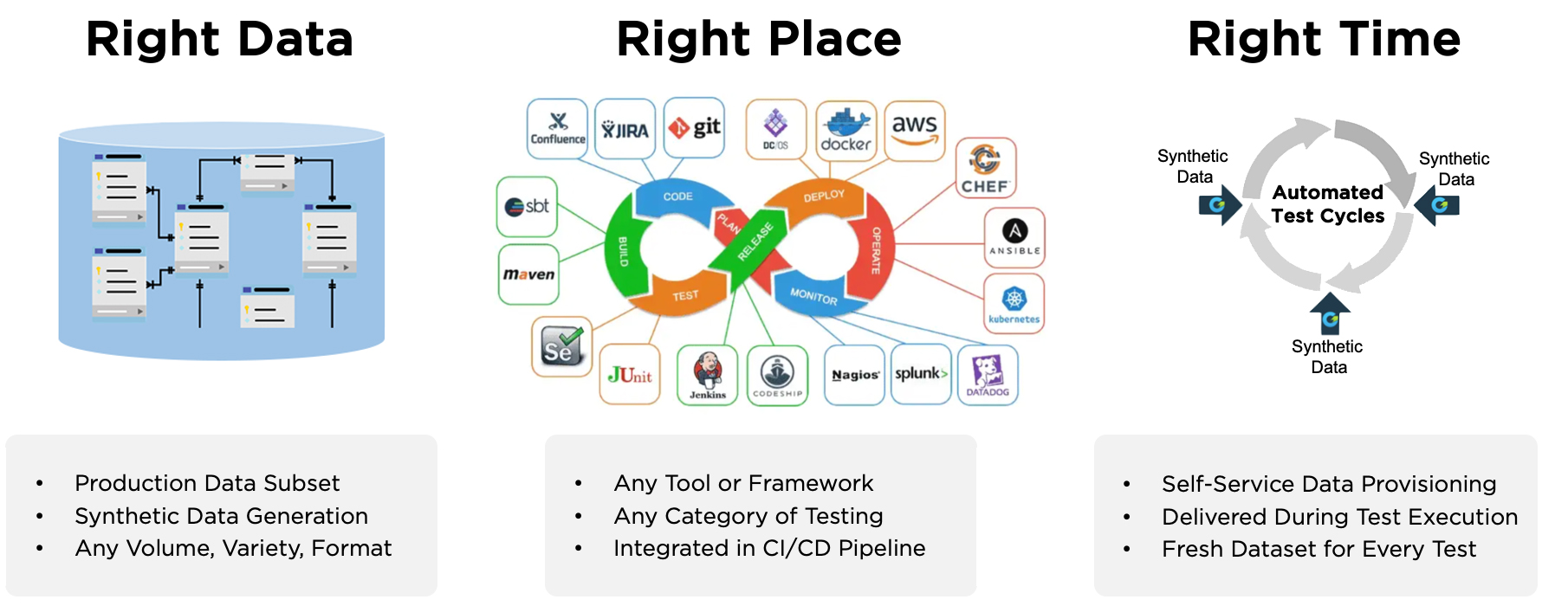
The platform also enables significant cost savings by reducing the need for cumbersome test data management processes and expensive resources. In most large organizations the amount of production data being stored in a nonproduction environment is several times the volume of data actually used in production. This not only represents a significant cost, it also creates a heightened security risk with the potential for sensitive data to be copied across multiple data subsets.
The Future of Data Provisioning with GenRocket
GenRocket’s TDA platform is revolutionizing the entire data provisioning process. With over 700 data generators and more than 100 data formats supported, GenRocket provides unmatched flexibility to meet any test data or training data challenge. This versatility ensures that companies can meet diverse data provisioning requirements, using either synthetic or production data, to achieve more advanced software testing and to develop more accurate AI-based applications. Through the use of automation, TDA streamlines the entire data provisioning process as it delivers higher quality data, at greater speed, with total security.
Stay ahead in the digital age with GenRocket’s TDA platform. Schedule a product demonstration today and discover how our innovative approach can ensure enhanced security, compliance, and efficiency for your organization.

